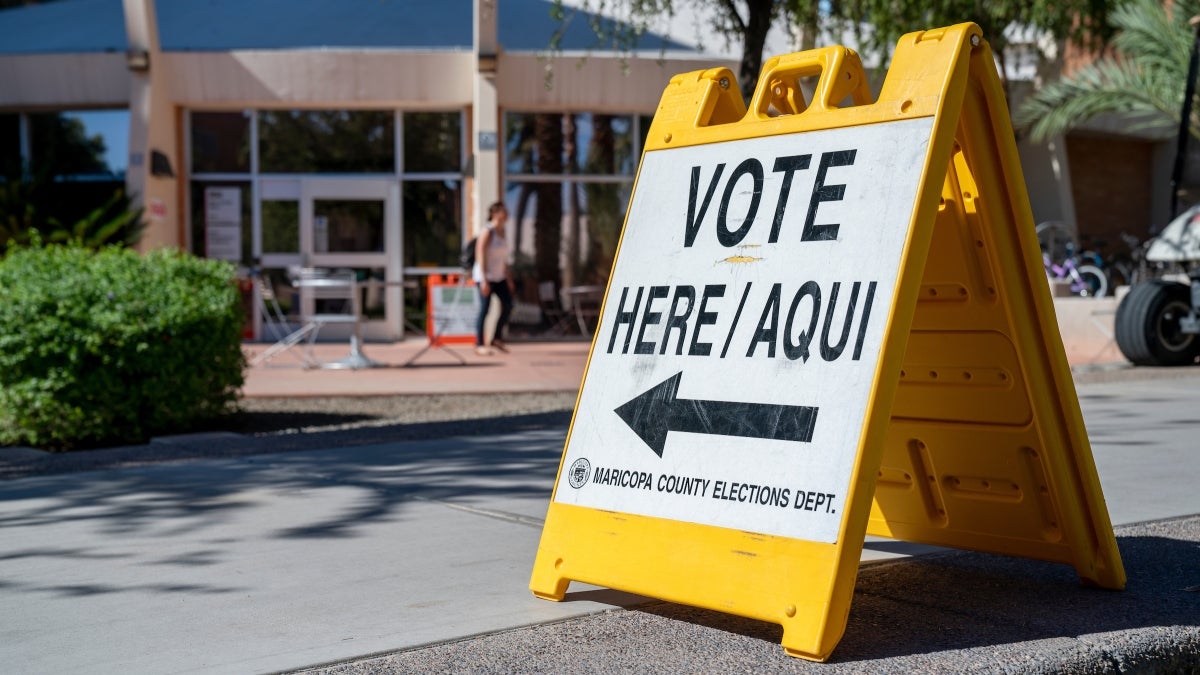Latino voters have long been thought of as a "sleeping giant" that could have significant impact in Arizona and national elections.
Their time may be now.
A new poll sponsored by Arizona State University suggests that a growing, maturing and more educated Latino population could well emerge as a powerful voting group in the 2020 elections.
ASU’s Center for Latina/os and American Politics Research and the School of Transborder Studies revealed the contents of its Arizona Latino Poll on Friday, March 13, ahead of the Arizona presidential primaryOn March 12, the Univision/CNN Democratic presidential debate has been moved from Phoenix to Washington, D.C..
The poll interviewed a large sample of more than 500 Latino registered voters in the state of Arizona, and a statewide sample of all voters, regarding the likelihood of voting, policy preferences, voting preferences, opinions on recent political developments and their views on presidential candidates.
ASU Now spoke to Rodney Hero, the Raul Yzaguirre Chair in the School of Politics and Global Studies who oversaw the poll, which was conducted March 6-11. Hero’s research and teaching focuses on American democracy and politics, especially as viewed through the analytical lenses of Latino politics, racial/ethnic politics, state and urban politics, and federalism.
Hero talked to ASU Now about the findings of the poll, which provides a snapshot of Arizona, a traditionally "red" state.
Rodney Hero
Q: Historically speaking, what’s been the perception of Latino voters in Arizona and has that changed over time?
A: There is perception and there is reality. The notion has generally been that Latino voters in Arizona have been this "sleeping giant" but that the population has not been fully engaged or mobilized, and that its full potential has not been realized. But the age profile of the Latino population is considerably younger, and the overall socioeconomic status is somewhat lower, than that of the general population; these attributes tend to be associated with lower voter turnout. One of the questions in the survey is, “How sure are you that you’re going to vote in the state and presidential election in 2020?” Statewide, about 88% of the population said they were "sure" to vote; Latino voters say they’re 72% sure. There are signs among Latino voters of increasing levels of interest and participation.
Q: Latino students here at ASU seem to be active and educated regarding politics.
A: Yes, true, and relevant. But remember we are looking at actual voter turnout. One of the common themes in research, though sometimes overstated, is that the degree of energy is not always translated into voter participation. Engagement and actual voter participation are not necessarily one and the same.
Q: What are the bigger issues and concerns that are important to Latino voters?
A: The cost of health care was the biggest concern noted by both Latinos and non-Latinos. However, there are some differences about policy approaches. Almost 70% of Latinos support some kind of universal health care; this compared to 55% among non-Latinos. Another substantial concern was that salary incomes need to increase. Another survey question was, “How much have you benefitted personally from the economy under Donald Trump?” Interestingly, 53% of Latinos said they did not see any benefit "at all," and 20% "just a little;" the responses for non-Latinos was 37% not at all and 17% just a little. So, there is a general sense of only seeing a limited personal benefit of the current economy, and that reservation is stronger among Latinos.
Q: What was the most notable finding in your research?
A: One of the questions we posed was, “If the 2020 presidential election was between an unspecified Democrat versus Donald Trump, who would you vote for?” Statewide it was, perhaps surprisingly, about an eight point lead of the Democrat over Trump, but among Latinos, it’s close to a 40% gap for the Democratic candidate. We also asked a question in the Arizona U.S. Senate race between Republican candidate Sen. Martha McSally and likely Democratic candidate Mark Kelly. Statewide it’s an 8% tilt toward Kelly; but among Latino voters, it’s something like 35%-plus toward Kelly, though with a considerable number of "undecideds."
Q: Does this new poll indicate to you that Latinos are more similar or more different than other voters in the state of Arizona?
A: My answer would be both. They are more likely to identify as Democrats and are different on some issues, including being more open to certain policy approaches regarding health care. But there are various other dimensions on which they are quite similar to other Democrats, and similar to the general public. How Latinos view and understand American politics, and policy priorities and preferences, and how and how much they respond to various issues will likely show continuity as well as change over time. The evolution of Latino, Arizona and general U.S. politics will remain intriguing and important for years to come. This survey will help us better grasp the current moment and be a reference point for the future.
Top photo: ASU students walk by a voting location. Early voting is available to students and community members at Palo Verde West on the Tempe campus. Photo by Marcus Chormicle/ASU Now
More Law, journalism and politics

Native Vote works to ensure the right to vote for Arizona's Native Americans
The Navajo Nation is in a remote area of northeastern Arizona, far away from the hustle of urban life. The 27,400-acre reservation is home to the Canyon de Chelly National Monument and…

New report documents Latinos’ critical roles in AI
According to a new report that traces the important role Latinos are playing in the growth of artificial intelligence technology across the country, Latinos are early adopters of AI.The 2024 Latino…

ASU's Carnegie-Knight News21 project examines the state of American democracy
In the latest project of Carnegie-Knight News21, a national reporting initiative and fellowship headquartered at Arizona State University’s Walter Cronkite School of Journalism and Mass Communication…

